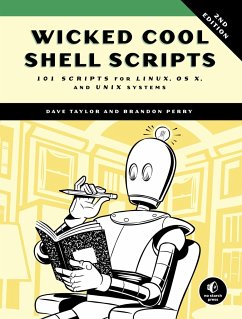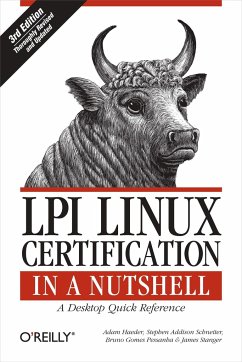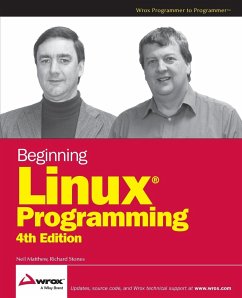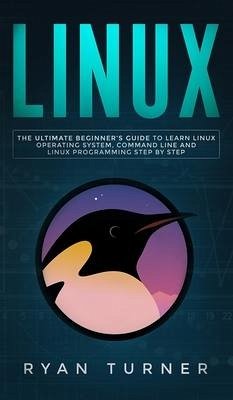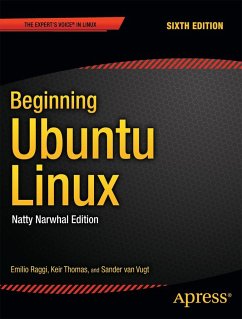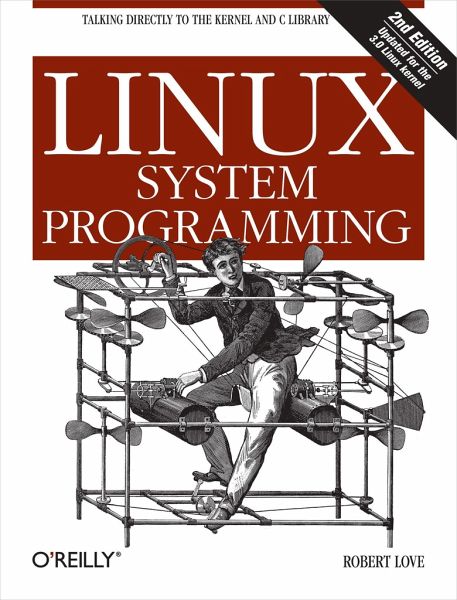
Linux System Programming
Talking Directly to the Kernel and C Library

PAYBACK Punkte
31 °P sammeln!
Write software that draws directly on services offered by the Linux kernel and core system libraries. With this comprehensive book, Linux kernel contributor Robert Love provides you with a tutorial on Linux system programming, a reference manual on Linux system calls, and an insider's guide to writing smarter, faster code.Love clearly distinguishes between POSIX standard functions and special services offered only by Linux. With a new chapter on multithreading, this updated and expanded edition provides an in-depth look at Linux from both a theoretical and applied perspective over a wide range...
Write software that draws directly on services offered by the Linux kernel and core system libraries. With this comprehensive book, Linux kernel contributor Robert Love provides you with a tutorial on Linux system programming, a reference manual on Linux system calls, and an insider's guide to writing smarter, faster code.
Love clearly distinguishes between POSIX standard functions and special services offered only by Linux. With a new chapter on multithreading, this updated and expanded edition provides an in-depth look at Linux from both a theoretical and applied perspective over a wide range of programming topics, including: A Linux kernel, C library, and C compiler overview Basic I/O operations, such as reading from and writing to files Advanced I/O interfaces, memory mappings, and optimization techniques The family of system calls for basic process management Advanced process management, including real-time processes Thread concepts, multithreaded programming, and Pthreads File and directory management Interfaces for allocating memory and optimizing memory access Basic and advanced signal interfaces, and their role on the system Clock management, including POSIX clocks and high-resolution timers
Love clearly distinguishes between POSIX standard functions and special services offered only by Linux. With a new chapter on multithreading, this updated and expanded edition provides an in-depth look at Linux from both a theoretical and applied perspective over a wide range of programming topics, including: A Linux kernel, C library, and C compiler overview Basic I/O operations, such as reading from and writing to files Advanced I/O interfaces, memory mappings, and optimization techniques The family of system calls for basic process management Advanced process management, including real-time processes Thread concepts, multithreaded programming, and Pthreads File and directory management Interfaces for allocating memory and optimizing memory access Basic and advanced signal interfaces, and their role on the system Clock management, including POSIX clocks and high-resolution timers




